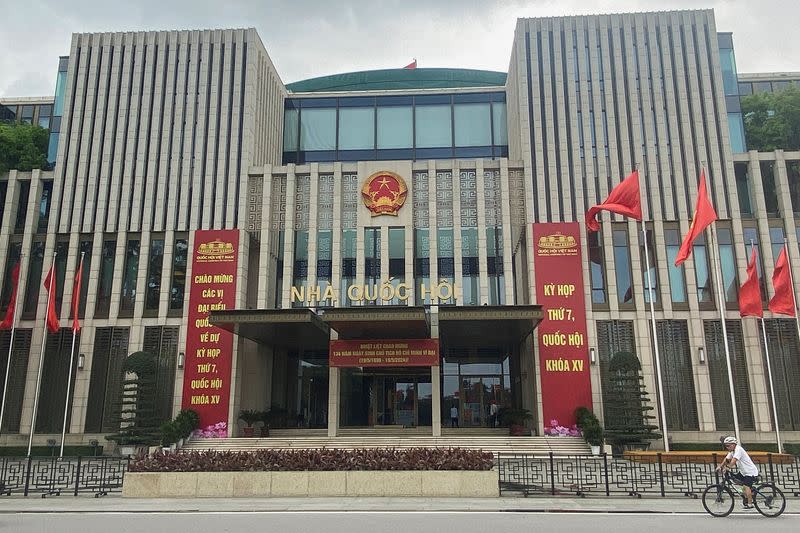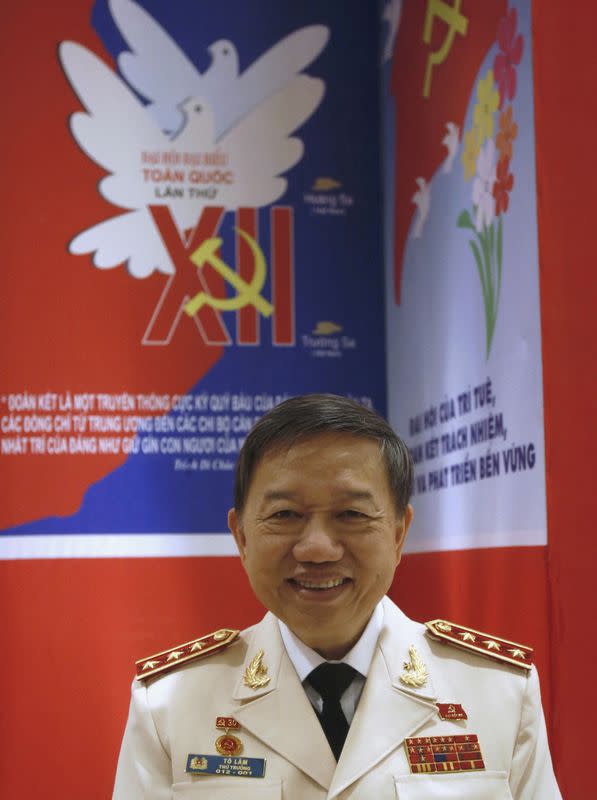Vietnam appoints top policeman as country's new president
By Khanh Vu and Francesco Guarascio
HANOI (Reuters) -Vietnam's parliament elected police minister To Lam as the state president on Wednesday, in a move analysts see as a "stepping stone" for Lam to bid later for the position of chief of the ruling Communist Party, the country's top job.
Lam's election followed the appointment on Monday by Vietnam's National Assembly of its new chairman, former deputy Tran Thanh Man, possibly bringing to a temporary end two-months of heightened political turbulence which saw the exit of three of Vietnam's top five leaders over unspecified wrongdoings.
In line with normal procedures in the tightly-controlled one-party state, lawmakers voted unanimously on a resolution that approved Lam's election after a secret ballot about him, the only candidate for the job. That followed his nomination by the Communist Party last week.
As head of the public security ministry, Lam, 66, has been a crucial figure in a sweeping anti-graft campaign, known as "blazing furnace", which is aimed at rooting out widespread corruption but has also been seen by critics as a tool to sideline opponents during political infighting.
That in turn is denting the country's appeal among foreign investors, who mostly reduced their securities holdings in recent months in coincidence with bad political news. It is also paralysing the public administration, with billions of dollars in foreign aid and public funds unspent.
After his election, Lam told lawmakers he would "resolutely and persistently continue the fight against corruption".
The state president holds a largely ceremonial role but is one of the country's top four political positions, the so-called 'four pillars'. The others are the party chief, the prime minister and the parliament speaker.
Political infighting is expected to temporarily abate after Lam's election, said Carl Thayer, emeritus professor and Vietnam expert at the Australian Defence Force Academy in Canberra.
But the crucial battle remains to be fought, as the ageing party chief Nguyen Phu Trong's third five-year term ends in 2026 - or earlier if he steps down before his mandate expires.
"To Lam could use his position as one of the 'four pillars' as a stepping stone to become general secretary," said Thayer, referring to the party chief job.
"With the elevation to the office of president, it becomes clear that there are more ambitions for To Lam than retirement," said Florian Feyerabend, the representative in Vietnam for Germany's Konrad Adenauer Foundation, a think tank, noting the position could be a "launch pad" to win the party chief job.
Until that crucial position is filled, Feyerabend expected continued infighting, which he defined as "the modus operandi of the system."
The parliament on Wednesday also voted to dismiss Lam from his post as police minister, according to state media, a move not originally in its schedule.
Prime Minister Pham Minh Chinh has assigned Deputy Minister of Public Security Tran Quoc To, 62, to temporarily head the ministry, online newspaper VietnamNet cited a government decision as saying.
GOLD STEAK
Lam's rise has not been without controversy.
In 2021, celebrity chef Nusret Gokce, known as "Salt Bae", uploaded a video of himself feeding Lam a gold encrusted steak at his London restaurant, while Vietnam was under COVID-19 lockdown. The video went viral before the Turkish chef removed it.
A noodle vendor who later posted a video imitating "Salt Bae" was sentenced to five years in prison for "anti-state propaganda".
Lam was the head of the public security ministry when in 2017 Vietnam's security services allegedly carried out an extraordinary rendition of a Vietnamese business executive from Germany through Slovakia. The case rattled relations with both countries.
The U.S. State Department's report on human rights in Vietnam in 2023, warned of significant violations by security forces and cited "credible reports that members of the security forces committed numerous abuses".
(Reporting by Khanh Vu and Francesco Guarascio; Editing by Martin Petty and Michael Perry)


